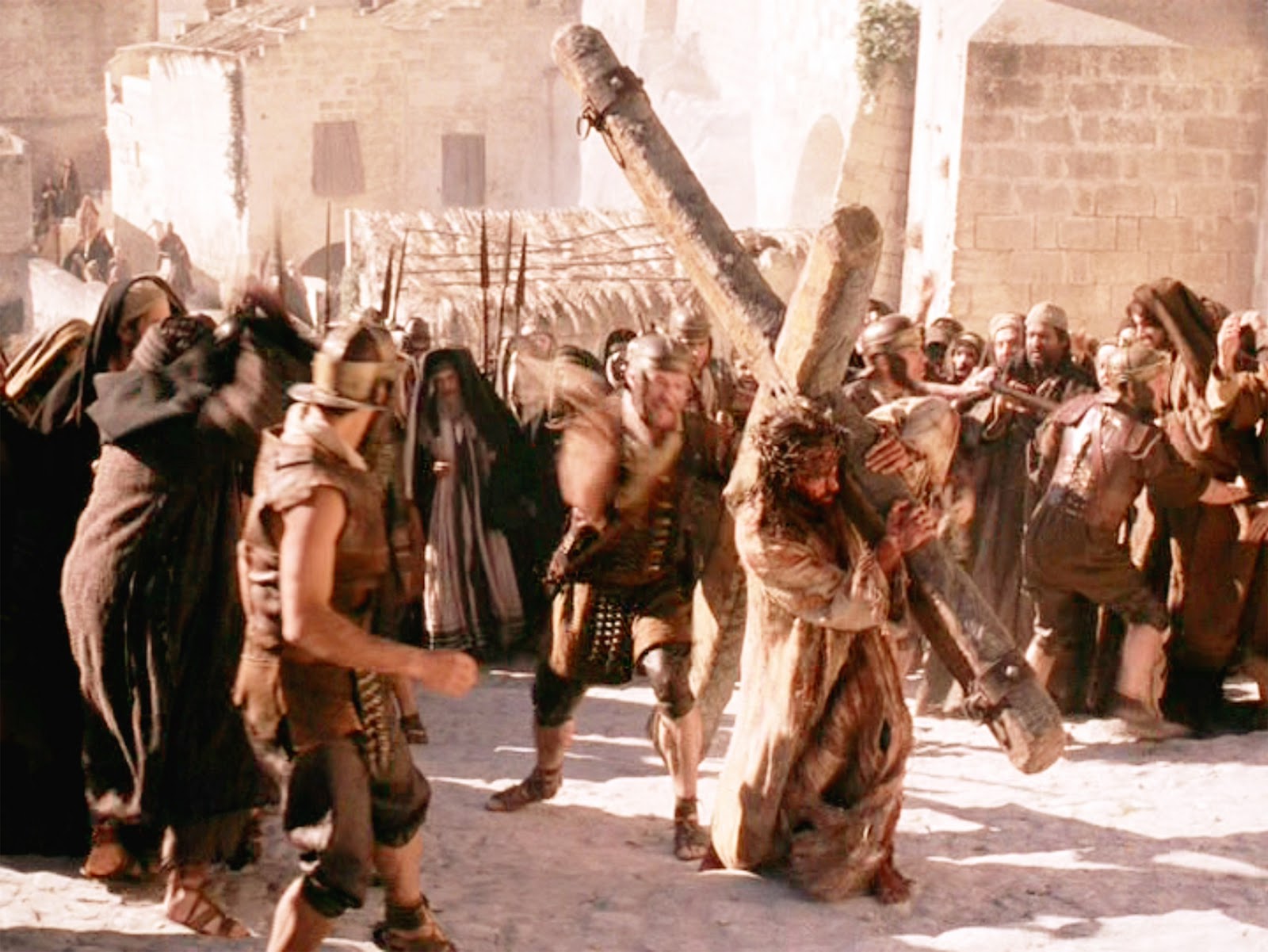

I debated Martin Scorsese's " The Last Temptation of Christ" with commentator Michael Medved before an audience from a Christian college, and was told by an audience member that the characters were filthy and needed haircuts. If it does nothing else, Gibson's film will break the tradition of turning Jesus and his disciples into neat, clean, well-barbered middle-class businessmen. (Not Hunter's fault the film's Crucifixion scene had to be re-shot because preview audiences objected to Jesus' hairy chest.) I remember my grin when Time magazine noted that Jeffrey Hunter, starring as Christ in "King of Kings" (1961), had shaved his armpits. I grew up on those pious Hollywood biblical epics of the 1950s, which looked like holy cards brought to life. This is not a Passion like any other ever filmed. You must be prepared for whippings, flayings, beatings, the crunch of bones, the agony of screams, the cruelty of the sadistic centurions, the rivulets of blood that crisscross every inch of Jesus' body. This is a completely valid response to the film, and I quote Ansen because I suspect he speaks for many audience members, who will enter the theater in a devout or spiritual mood and emerge deeply disturbed. "Instead of being moved by Christ's suffering or awed by his sacrifice, I felt abused by a filmmaker intent on punishing an audience, for who knows what sins." "The relentless gore is self-defeating," he writes. Take it or leave it.ĭavid Ansen, a critic I respect, finds in Newsweek that Gibson has gone too far.

This is not a sermon or a homily, but a visualization of the central event in the Christian religion. That his film is superficial in terms of the surrounding message - that we get only a few passing references to the teachings of Jesus - is, I suppose, not the point. What Gibson has provided for me, for the first time in my life, is a visceral idea of what the Passion consisted of. Christ suffered, Christ died, Christ rose again, we were redeemed, and let's hope we can get home in time to watch the Illinois basketball game on TV. As an altar boy, serving during the Stations on Friday nights in Lent, I was encouraged to meditate on Christ's suffering, and I remember the chants as the priest led the way from one station to another:įor we altar boys, this was not necessarily a deep spiritual experience. Anyone raised as a Catholic will be familiar with the stops along the way the screenplay is inspired not so much by the Gospels as by the 14 Stations of the Cross. It is clear that Mel Gibson wanted to make graphic and inescapable the price that Jesus paid (as Christians believe) when he died for our sins. Cast: Abel Jafri, Abraam Fontana, Adel Bakri, Adel Ben Ayed, Aleksander Mincer, Andrea Coppola, Andrea Refuto, Angelo Di Loreta, Antonello Iacovone, Arianna Vitolo, Chokri Ben Zagden, Christo Jivkov, Claudia Gerini, Daniela Poti, Danilo Di Ruzza, Danilo Maria Valli, Dario D’Ambrosi, Davide Marotta, Domenico Capalbo, Emanuele Gullotto, Emilio De Marchi, Evelina Meghnagi, Fabio Sartor, Federico Pacifici, Francesco Cabras, Francesco De Rosa, Francesco De Vito, Francesco Gabriele, Francis Dokyi, Franco Costanzo, Gabriella Barbuti, Giacinto Ferro, Giovanni Capalbo, Giovanni Vettorazzo, Giuseppe Lo Console, Hristo Shopov, Ivan Gaudiano, Jarreth J.I prefer to evaluate a film on the basis of what it intends to do, not on what I think it should have done.


 0 kommentar(er)
0 kommentar(er)
